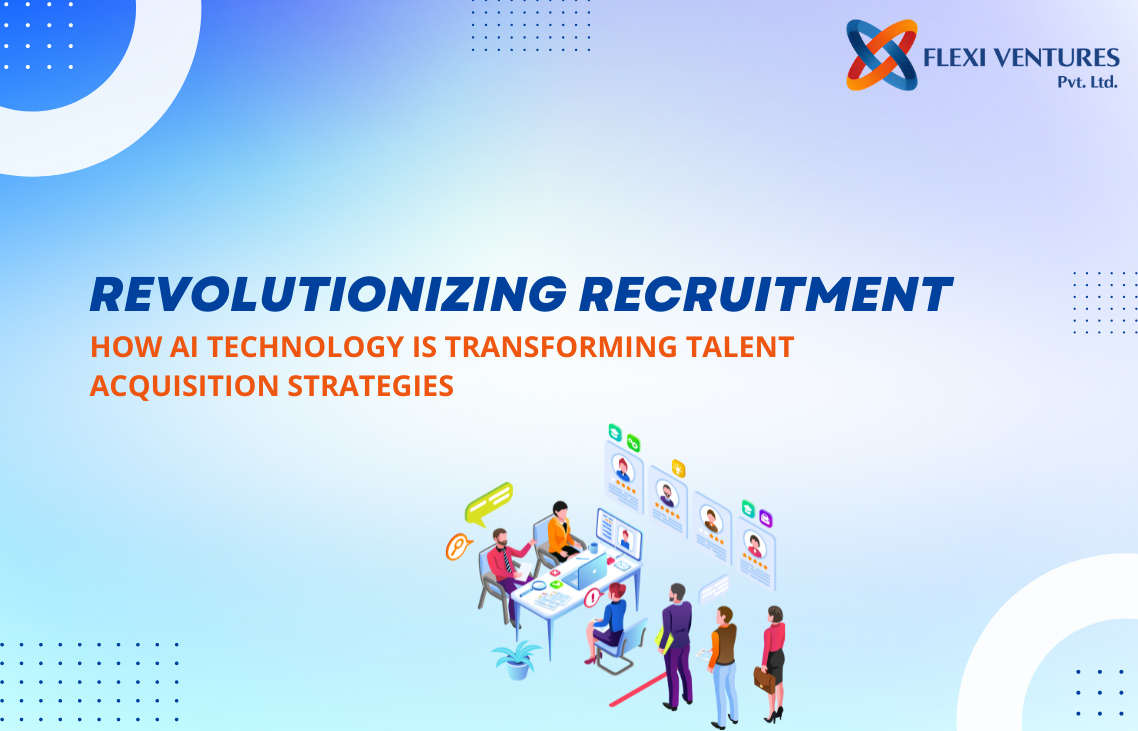In the ever-evolving landscape of talent acquisition, where the pursuit of top-tier talent intersects with cutting-edge technology, Artificial Intelligence (AI) emerges as a transformative force. AI reshapes and revolutionizes traditional paradigms of identifying, attracting, and retaining talent. This article embarks on a journey to explore the profound impact of AI on modern recruiting strategies, navigating through innovative technologies, unlocking transformative benefits, and envisioning the future trajectory of talent acquisition. As organizations embrace the digital age, integrating AI becomes not just a choice but a strategic imperative in the relentless pursuit of securing the best talent in an ever-competitive market.
The Rise of AI in Recruitment
As technology advances, the role of AI in recruitment grows increasingly significant. From resume screening to candidate matching, AI and recruiting algorithms analyze vast datasets quickly and precisely, streamlining the initial stages of talent identification. This shift enables recruiters to concentrate on the strategic aspects of the hiring process, fostering a more efficient and targeted approach. The combination of technological prowess and human insight creates a symbiotic relationship, where AI’s analytical capabilities enhance recruiters’ strategic decision-making, ensuring a comprehensive and effective talent identification process.
Innovative Technologies in AI Recruiting
AI introduces a range of innovative technologies in recruiting, transforming the traditional recruitment landscape into a dynamic and responsive ecosystem. Chatbots play a central role, engaging candidates with instant responses, streamlining queries, and ensuring a seamless application process. Predictive analytics emerges as a powerful ally, optimizing decision-making by assessing candidate suitability through the analysis of historical data. Video analysis tools add another layer of insights beyond traditional resumes, examining non-verbal cues to provide a more comprehensive understanding of potential candidates. As the recruiting landscape makes headway, these AI-driven technologies become the cornerstones of a more insightful, efficient, and candidate-centric approach to talent acquisition.
Enhanced Candidate Experience
AI not only benefits recruiters but also enhances the candidate experience to unprecedented heights. Automated communication offers more than just efficiency; it provides candidates with timely updates, reducing uncertainty and promoting transparent engagement. Beyond the transactional, AI-driven systems facilitate personalized interactions that create a genuinely engaging and positive recruitment journey. This approach not only streamlines the process but also leaves canRevolutionizing Recruitment: How AI Technology is Transforming Talent Acquisition Strategiesdidates with a lasting and favorable impression of the organization, highlighting the symbiotic relationship between technology and the human touch in modern talent acquisition.
AI and Human Collaboration
The future of talent acquisition hinges on the collaboration between AI and human expertise. While AI streamlines routine tasks, human judgment is essential for nuanced decision-making. Achieving the right balance ensures that technology enhances human skills, creating a harmonious synergy that optimizes the entire recruitment process.. This symbiotic partnership not only enhances the efficiency of talent acquisition but also acknowledges the irreplaceable role of human intuition and empathy in making informed and complex decisions. As organizations navigate this dynamic landscape, the convergence of AI and human expertise becomes the compass guiding them toward a future where recruitment is not just a process but a strategic collaboration between technology and human insight.
Benefits of AI in Recruitment
The adoption of AI in recruitment offers numerous advantages for both employers and job seekers:
- Efficiency: AI can process vast amounts of data and perform repetitive tasks in seconds, significantly reducing the time and effort required for administrative tasks.
- Cost Savings: Automation reduces the cost of hiring by requiring fewer human resources for manual tasks. This is especially beneficial for small to medium-sized enterprises.
- Improved Quality of Hires: AI can identify and engage candidates with the most relevant skills and experiences, leading to better-quality hires and a higher retention rate.
- Enhanced Candidate Experience: Chatbots and virtual assistants provide candidates with quick responses and a more streamlined application process, improving overall satisfaction. This is particularly valuable in handling large volumes of candidates, where personalized responses for every candidate are impractical.
- Data-Driven Decision Making: AI provides insights into the hiring process, helping organizations make data-driven decisions, refine their strategies, and optimize their recruitment processes. Insights on competitive salary offerings, talent market availability, and activity levels help manage hiring manager expectations and guide role parameter adjustments to find the right talent.
- Reduced Bias: By anonymizing candidate profiles and using objective criteria for assessment, AI can help mitigate unconscious bias and promote diversity in hiring.
Challenges and Ethical Considerations
Despite its transformative potential, AI in recruiting presents challenges that require a thoughtful and ethical approach. Organizations must address ethical considerations surrounding the use of AI algorithms in recruitment processes, including potential biases embedded in these algorithms and the need for transparent communication with candidates. Addressing these challenges is paramount to ensure a responsible and fair application of AI technologies in shaping the future of talent acquisition practices.
In conclusion, the integration of Artificial Intelligence into recruiting heralds a new era in talent acquisition. The benefits are manifold, from automating routine tasks to enhancing decision-making and promoting diversity and inclusion. Embracing this transformative journey propels organizations to the forefront of modern recruitment, where attracting and retaining top-tier talent defines success in a highly competitive landscape. As technology and human expertise converge, the synergy between AI and recruiting becomes a powerful catalyst for organizational success in the talent acquisition realm.

